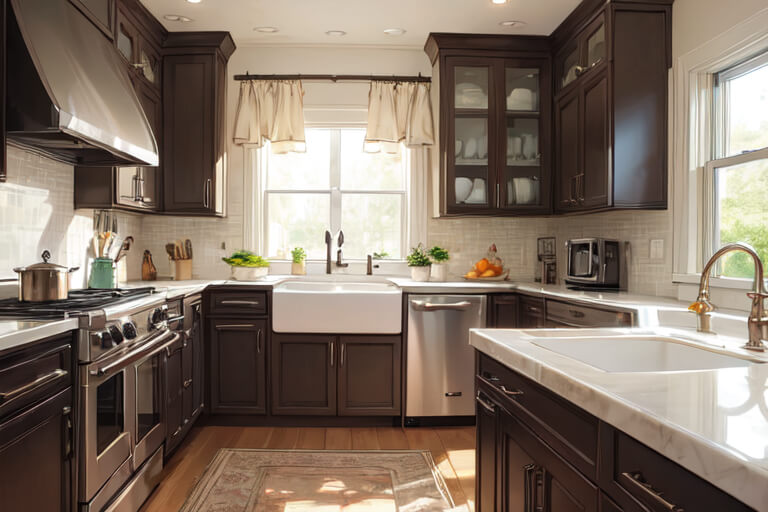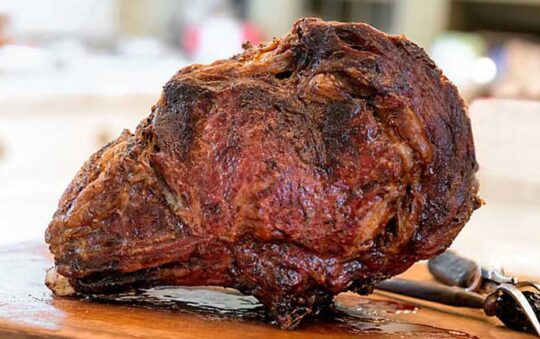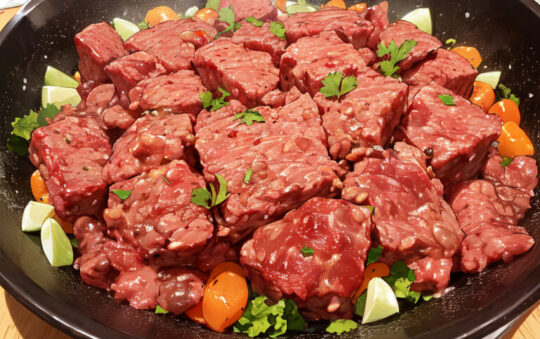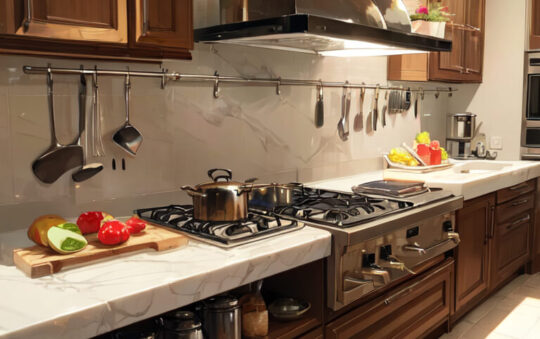
Cooking can be a fun and rewarding experience, but it can also be overwhelming and stressful, especially for those who are new to the kitchen. Kitchen tips can make a big difference in the success of a meal and can save time and effort in the long run. Whether it’s mastering basic cooking skills or learning how to stock a pantry, there are many tips and tricks that can help anyone become a more confident and efficient cook.
One of the most important kitchen tips is to always read the recipe carefully before beginning to cook. This will help ensure that all necessary ingredients are on hand and that the cook understands the steps involved. Another essential tip is to keep the kitchen organized and clean. This means washing dishes as you go, wiping down counters and surfaces, and putting away ingredients and tools when they are no longer needed.
In addition to these basic tips, there are many other tricks that can help make cooking easier and more enjoyable. For example, using a sharp knife can make chopping and slicing much easier, while using a non-stick pan can prevent food from sticking and burning. By incorporating these and other kitchen tips into their cooking routine, anyone can become a more confident and successful cook.
Essential Kitchen Tools
Knives and Cutting Boards
One of the most important tools in any kitchen is a good set of knives. A chef’s knife, a paring knife, and a serrated bread knife are essential for any home cook. Look for knives that are comfortable to hold and have a sharp blade. A dull knife can be dangerous and make cutting more difficult.
In addition to knives, cutting boards are also essential. Wooden cutting boards are great for slicing and dicing vegetables and fruits, while plastic cutting boards are ideal for cutting raw meat. Make sure to clean your cutting board thoroughly after each use to prevent cross-contamination.
Pots and Pans
Having a variety of pots and pans can make cooking a breeze. A large pot is great for making soups and stews, while a small saucepan is perfect for heating up sauces and gravies. A non-stick frying pan is great for cooking eggs and pancakes, while a cast-iron skillet is ideal for searing meats and creating a crispy crust.
When purchasing pots and pans, look for ones that are made of high-quality materials and have a sturdy construction. A good set of pots and pans can last a lifetime if taken care of properly.
Measuring Devices
Accurate measurements are key to successful cooking and baking. Measuring cups and spoons are essential for measuring dry ingredients, while a liquid measuring cup is great for measuring liquids. A kitchen scale is also a great tool for measuring ingredients by weight.
When using measuring devices, make sure to level off dry ingredients and read the measurements at eye level for accuracy. With the right tools, measuring ingredients can be quick and easy.
Food Storage and Preservation
Refrigeration Tips
Proper refrigeration is essential for food safety and preservation. To ensure your food stays fresh, keep your refrigerator at a temperature between 35°F and 40°F. Store raw meat, poultry, and seafood on the bottom shelf to prevent cross-contamination. Use airtight containers or plastic wrap to cover food and prevent odors from spreading. Clean your fridge regularly to prevent bacteria growth.
Freezing Techniques
Freezing is a great way to extend the shelf life of food. When freezing food, make sure to label and date the container to keep track of how long it has been frozen. Use freezer-safe containers or bags to prevent freezer burn. To save space, freeze food in flat, stackable containers or bags. Before freezing, blanch vegetables to preserve their color and texture.
Pantry Organization
A well-organized pantry can save time and money. Group similar items together and label them for easy identification. Use clear containers to store dry goods like pasta, rice, and cereal. Keep frequently used items at eye level and store less frequently used items on higher or lower shelves. Check expiration dates regularly and rotate older items to the front to ensure they get used first.
By following these simple food storage and preservation tips, you can keep your food fresh and safe for longer.
Cooking Techniques
Stir-Frying Basics
Stir-frying is a quick and easy cooking technique that can yield delicious and healthy meals. To stir-fry, heat oil in a wok or large skillet over high heat. Add thinly sliced meat or vegetables and stir constantly until cooked through. Here are a few tips to help you perfect your stir-fry game:
- Cut ingredients into uniform sizes to ensure even cooking.
- Use a high smoke point oil such as vegetable or peanut oil.
- Add ingredients in order of cooking time, starting with the ones that take the longest to cook.
- Don’t overcrowd the pan as it will cause the ingredients to steam rather than fry.
Baking Essentials
Baking can be a fun and rewarding way to create delicious treats. Here are a few essential tips to help you get started:
- Always preheat your oven to the correct temperature before baking.
- Measure ingredients accurately to ensure consistent results.
- Use room temperature ingredients, especially butter and eggs, to ensure even mixing.
- Don’t overmix your batter as it can result in tough and dry baked goods.
Grilling Tips
Grilling is a great way to add flavor to your food while enjoying the outdoors. Here are a few tips to help you become a grill master:
- Clean your grill grates before and after each use to prevent food from sticking.
- Oil your grill grates before cooking to prevent sticking and ensure even cooking.
- Use a meat thermometer to ensure your meat is cooked to the proper temperature.
- Let your meat rest for a few minutes after grilling to allow the juices to redistribute.
Kitchen Safety
Handling Knives
When it comes to using knives, safety should always be a top priority. Always use a sharp knife, as a dull one can slip and cause injury. When cutting, make sure the blade is facing away from your body and keep your fingers curled under your hand to avoid accidentally cutting them. When passing a knife to someone else, always place it on a flat surface and let them pick it up themselves.
Fire Prevention
Fires can happen in the kitchen, but there are steps you can take to prevent them. Keep flammable objects away from the stove, such as oven mitts and towels. Never leave cooking food unattended, and always turn off the stove or oven when you’re finished. Make sure your smoke detectors are working properly and have a fire extinguisher nearby just in case.
Avoiding Cross-Contamination
Cross-contamination can occur when bacteria from one food item is transferred to another. To prevent this, always wash your hands before and after handling food, use separate cutting boards for raw meat and produce, and use different utensils for each food item. It’s also important to properly store food in the refrigerator to prevent bacteria growth.
By following these kitchen safety tips, you can ensure a safe and enjoyable cooking experience.
Cleaning and Maintenance
Daily Cleaning Routine
Keeping a clean kitchen is essential for both hygiene and aesthetics. A daily cleaning routine can help prevent buildup of dirt and grime. Here are some quick tips for daily cleaning:
- Wipe down countertops and tables with a disinfectant spray or wipe.
- Sweep or vacuum the floors to remove crumbs and debris.
- Wash dishes and utensils immediately after use to prevent food from drying and sticking to them.
- Clean spills and stains as soon as possible to prevent them from becoming harder to remove.
- Empty the trash and recycling bins regularly to prevent odors and pests.
Deep Cleaning Tips
Deep cleaning your kitchen is important to remove built-up dirt and grime that may not be visible to the naked eye. Here are some tips for deep cleaning:
- Clean the inside of the refrigerator and freezer, removing all items and wiping down shelves and drawers with warm soapy water.
- Clean the oven and stovetop, removing any burnt-on food with a scrub brush or scraper.
- Clean the cabinets and drawers, removing all items and wiping down surfaces with warm soapy water.
- Wash the windows and blinds to remove dust and dirt.
- Scrub the sink and faucet with a disinfectant cleaner.
Appliance Care
Regular maintenance of kitchen appliances can help extend their lifespan and prevent breakdowns. Here are some tips for appliance care:
- Clean the dishwasher filter regularly to prevent clogs and ensure proper drainage.
- Clean the range hood filter to prevent grease buildup and ensure proper ventilation.
- Clean the coffee maker and remove any mineral buildup with a vinegar solution.
- Check the seals on the refrigerator and freezer doors to ensure they are tight and not leaking cold air.
- Have a professional service the oven and other appliances regularly to prevent breakdowns and ensure they are functioning properly.





